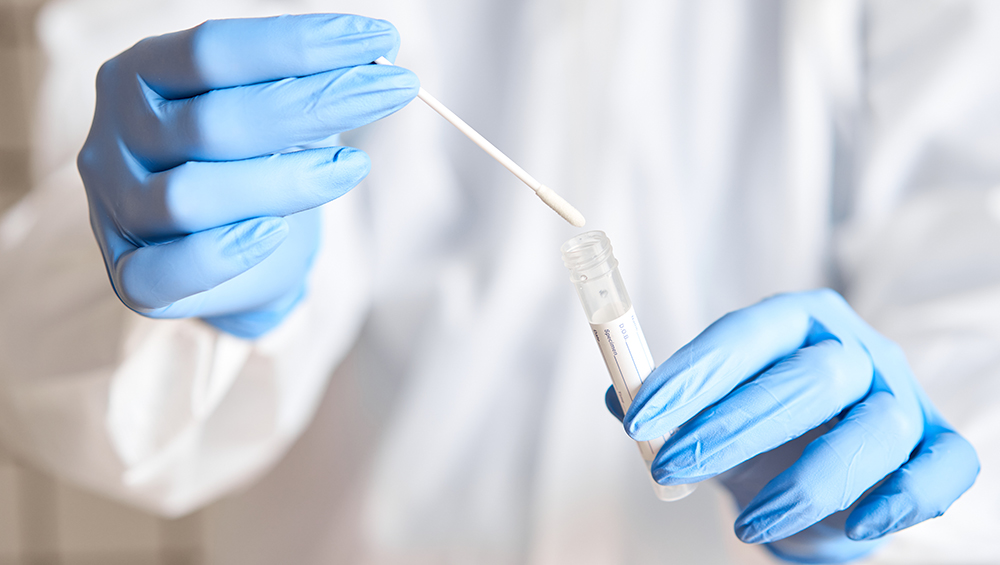Anal dysplasia is an anorectal condition characterized by abnormal cellular changes and warts in the lining of the anus, which can range from mild to severe and may increase the risk of developing anal cancer. At the Colorectal Division of North Carolina Surgery at UNC REX in Raleigh, anal dysplasia is treated by our highly trained and experienced colorectal specialists.
Understanding Anal Condyloma and Dysplasia
Also known as anal warts, condyloma are growths appearing on the skin surrounding the anus, inside the anal canal, or in the lower rectum. Sometimes, condyloma cells mutate further and become more abnormal (precancerous). If you have this issue, also called anal dysplasia, it’s crucial that a colorectal specialist treats it so that the cells do not turn into anal cancer.
Dysplasia Symptoms
If you are experiencing symptoms of condyloma and dysplasia, they are the results of the human papillomavirus (HPV). However, many patients infected with HPV don’t experience any symptoms. If you do have HPV symptoms, they may include:
- Dysplastic lesions
- Itching
- Pain
- Warty growths on the skin around the anus and genitals
- Bleeding
Causes of Colorectal Dysplasia
HPV causes anal warts, which are a form of low-grade anal dysplasia. If you’re HIV-positive, your weakened immune system may put you more at risk for the virus. Also, if you regularly engage in anal sex, your anal canal may experience cuts or tears, leaving you more exposed to contracting HPV.
Preventing HPV is generally considered the best defense against condyloma and anal dysplasia. Your primary care provider can give you the HPV vaccine in their office; it’s recommended for all teenagers and others at high risk. Whether or not you are eligible for the HPV vaccine, doctors also recommend practicing safe sex to prevent your exposure to HPV and your risk for condyloma and anal dysplasia.
Diagnosing Dysplasia
If you’re HIV-positive, regularly engage in anal sex, or have a weakened immune system, experts recommend that you undergo an annual screening test for condyloma and dysplasia. Your PCP or infectious disease provider can perform this simple swab test. If a screening test determines you have abnormal cells, your doctor will refer you to a colorectal specialist for the next steps of your care plan.
Treatment for Condyloma and Dysplasia
Treating condyloma and anal dysplasia focuses on eliminating your symptoms and lessening your risk for anal cancer. Depending on your exact situation, treatment options could include:
Topical Creams
You can apply one of several prescription medications to the affected skin at home. However, success with these creams varies, and they can cause troublesome side effects, such as pain, burning, or itching.
High-Resolution Anoscopy
If the warts or dysplasia are inside the anal canal, your specialist may recommend a high-resolution anoscopy. This technique is performed in our clinic using a microscope to carefully evaluate the removal of the affected areas. Occasionally, concerning regions can be treated during this procedure; other times, an operation under light anesthesia is recommended for complete treatment.
Surgical Ablation
During this procedure, your surgeon will remove the affected areas. You will be under light anesthesia for your comfort.
Schedule Your Appointment
If you or your primary care physician believe you may have anal condyloma or dysplasia, our Raleigh-based colorectal specialists are here to help. Contact the Colorectal Division of North Carolina Surgery at UNC REX today to schedule your first appointment with a member of our dedicated team.
Anal Dysplasia FAQs
Is it possible to prevent the progression of low-grade anal dysplasia to high-grade dysplasia?
Yes, regular monitoring and lifestyle changes like quitting smoking and maintaining a healthy immune system can help prevent progression. Early intervention with appropriate treatments can also mitigate risks.
Can diet or nutrition influence the progression of anal dysplasia?
A healthy diet that supports immune function may reduce the risk of progression. While no specific foods are proven to prevent dysplasia, good nutrition benefits general health and immune response.
Can anal dysplasia come back after treatment?
Yes, anal dysplasia can recur, especially in individuals with a persistent HPV infection or weakened immune systems. Regular follow-up appointments and monitoring are essential to detect and address any recurrence early.
Learn more about the procedures and surgeries that our team offers.


